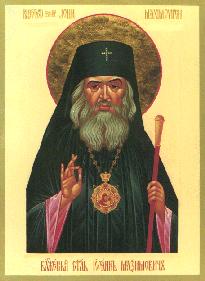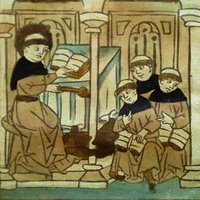The Mystery of Suffering in the Wake of Tragedy
I cannot remember who it was, but an Orthodox elder once said, "Those who suffer because of their sins receive healing and forgiveness, while those who suffer unjustly become partakers in Christ's sufferings."
Many so-called Christians want to label every disaster as a divine punishment. This simplistic way of thinking, however, has ended up distorting the true teaching about God and His relationship with humanity. Death and suffering of any kind are merely consequences of sins. When Scripture speaks of God's punishment, it means that God allows us to taste the consequences of our actions. This punishment, it is important to note, is given in hope that we will recognize our weakness and inability to live without God and return to Him in repentance. God's chief desire, expressed most poignantly in the Incarnation, is a relationship of love and communion with each human being. Everything that Jesus Christ the God-man endured and accomplished--His Incarnation, His childhood, His teaching, the miracles and healings, His forgiving the sins of the woman caught in adultery and the paralytic, the fasting in the wilderness and His temptation, His Baptism, the hatred of the Jewish elders, the little faith of His disciples, His betrayal by a friend, His rejection by His own people, the Crucifixion on Golgotha, His forgiveness of those who crucified Him, etc.--was meant for each one of us, to draw us to Himself. Likewise, as the saints are immitators of Christ, they seek by their words, miracles, and hardships endured to draw individuals to God.
Thus all suffering, even the most senseless, is blessed because through it we can draw nearer to God. This happens because pain removes the barriers we have placed between ourselves and God. It humbles us so that we can turn to God and realize how near He is, how much love He has for us. No one who endures pain and agony in this life patiently and with hope in God will be without consolation. Christ our God Himself, after all, became a human being in order to suffer with us, in order know suffering and death and thereby take away our sins. This is a mystery, a sacrament, for now each pain we endure, we endure with Christ.
So, let the tongues of unbelievers who question God's goodness each time a tragedy happens be silent. And let those who love Christ and hope in Him take courage. Because of the Cross, suffering is no longer tragic, but redemptive. The brilliant Resurrection of Christ already shines upon us from the dawn of eternity. Let us, then, forget grief and despair and remember God Who has prepared glorious and indescribable things for those who love Him. And let us endure, putting hope in God and waiting on Him, for all those who endure to the end will be saved. Amen.
Many so-called Christians want to label every disaster as a divine punishment. This simplistic way of thinking, however, has ended up distorting the true teaching about God and His relationship with humanity. Death and suffering of any kind are merely consequences of sins. When Scripture speaks of God's punishment, it means that God allows us to taste the consequences of our actions. This punishment, it is important to note, is given in hope that we will recognize our weakness and inability to live without God and return to Him in repentance. God's chief desire, expressed most poignantly in the Incarnation, is a relationship of love and communion with each human being. Everything that Jesus Christ the God-man endured and accomplished--His Incarnation, His childhood, His teaching, the miracles and healings, His forgiving the sins of the woman caught in adultery and the paralytic, the fasting in the wilderness and His temptation, His Baptism, the hatred of the Jewish elders, the little faith of His disciples, His betrayal by a friend, His rejection by His own people, the Crucifixion on Golgotha, His forgiveness of those who crucified Him, etc.--was meant for each one of us, to draw us to Himself. Likewise, as the saints are immitators of Christ, they seek by their words, miracles, and hardships endured to draw individuals to God.
Thus all suffering, even the most senseless, is blessed because through it we can draw nearer to God. This happens because pain removes the barriers we have placed between ourselves and God. It humbles us so that we can turn to God and realize how near He is, how much love He has for us. No one who endures pain and agony in this life patiently and with hope in God will be without consolation. Christ our God Himself, after all, became a human being in order to suffer with us, in order know suffering and death and thereby take away our sins. This is a mystery, a sacrament, for now each pain we endure, we endure with Christ.
So, let the tongues of unbelievers who question God's goodness each time a tragedy happens be silent. And let those who love Christ and hope in Him take courage. Because of the Cross, suffering is no longer tragic, but redemptive. The brilliant Resurrection of Christ already shines upon us from the dawn of eternity. Let us, then, forget grief and despair and remember God Who has prepared glorious and indescribable things for those who love Him. And let us endure, putting hope in God and waiting on Him, for all those who endure to the end will be saved. Amen.








0 Comments:
Post a Comment
<< Home